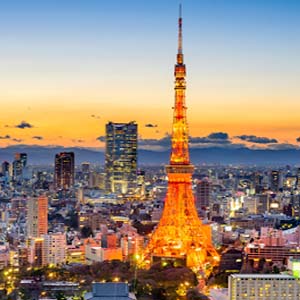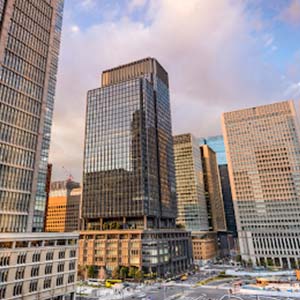How to Navigate Working Culture in Japan
No matter how hard we try to fight it, work can be a huge part of life, particularly when it comes to moving to a new country. Japan’s work culture is notorious for long hours, restrictive hierarchy, and an environment built on respect and harmony. This has been the source of culture shock for expats in the past, especially those moving from the western hemisphere.
Whether it’s your reason to move or your ticket in, your job is important. Even more so, having a good working environment is crucial for your quality of life. Your job can be a source of connections, give you a sense of accomplishment, and, of course, provide the funds you need to live the life that you want. That’s why you should be adequately prepared for working life, wherever you’re relocating.
An ageing population in Japan has led the government to open its doors to a foreign workforce. Employees embarking on a Japanese adventure should first be prepared for the different way of working that some people experience in Japan.
Huge steps are being taken to create a fantastic life at work in Japan, ready for you to create a great new life there. Find out how you can start your Japanese relocation journey today.

Work-Life Balance
While annual leave is available for employees in Japan, many feel that the atmosphere created at work is restrictive on how much can be taken. It is this environment in some companies that led to the Japanese workforce in 2018 taking just over 52% of the annual leave allocated to them (according to a government study). However, this is being tackled as a matter of urgency.
The Japanese government is urging employees to take the annual leave that is allocated to them when they wish to, hoping that this will encourage the workforce to take the time owed to them. New initiatives and reforms from the government in recent years have emphasised the importance of work-life balance and flexible working. There is now a cap on weekly working hours, and it was an aim to encourage workers to take at least 70% of their allocated leave by 2020.
If you are ever in the dark about how much annual leave you have left, you should always speak to a manager about this yourself.
Work Ethic & Karoshi
This desire to continue work is embedded in the cultural and historical roots of Japan. You may have heard of the word “karoshi”, a Japanese word coined to mean death through overworking. While you might hear this word thrown around, it is no real threat to you or your fellow employees. This archaic term is used in reference to the older views on work, which are quickly subsiding in modern times.

Continuous Progress
“Kaizen” is another concept that can be unfamiliar to western workers. It is a term that means “continuous progress”. This means that companies in Japan are constantly evaluating processes, plans and outcomes to see if further progress can be made. With a traditional Japanese attitude, there is always room to improve and work better. While you might be without the kind words that you might find in more western offices, there is merit in always looking onwards and upwards!
Once a goal is hit, there is no pause to sit and celebrate as there might be in a US or UK company. The goal is simply moved forwards so that there is always something to be achieved, which is why Japanese companies are often much more successful or productive than their western counterparts, which can be hugely exciting and rewarding!
Long Working Days
You may have also heard that it is not uncommon for Japanese workers, managers in particular, to catch the last train home at the end of every day. This, again, is tied to the old-fashioned views of corporate Japan: Leaving work on time when there are problems to solve is similar to attitudes about annual leave – you’re free to do it, but colleagues and managerial staff might think worse of you as a result. This should not be taken at face value, as you nor your colleagues will be penalised as a result of leaving on time and respecting your mental health.
After Work Drinks
The social side of working in Japan is also a shock to some expats! Past 6 o’clock, you might be invited to attend post-work drinks and parties. This “personal time” is just as important as your time on the clock, as it allows you to build important relationships with those you spend your long hours with. Here, conversations about business are frowned upon, and colleagues will strive to get to know one another and build trust.
Peaceful Cooperation
In a Japanese working environment, the needs of the many will always come before the few. Collective harmony in business teams is maintained by always doing what is best for the group, even if this disadvantages an individual. While working in Japan, you could be on either end of this system, so be prepared to put the work in to benefit others if required. Japanese workers are traditionally expected to take more on themselves so as to not be a burden to others, so do not be surprised by this as you enter the world of work.

Reforms in Japan’s Working Culture
Work culture in Japan has a reputation for being tiring for its employees, but this is not always the case. In more modern times, the Japanese work culture is changing, meaning shorter hours and healthier work-life balances for employees.If you’re considering whether you’re ready for work in Japan, all you need is to find the right company environment for you.
Our wealth of moving services including settling-in assistance, can help you throughout your moving abroad process. Get in touch for a quote today.



